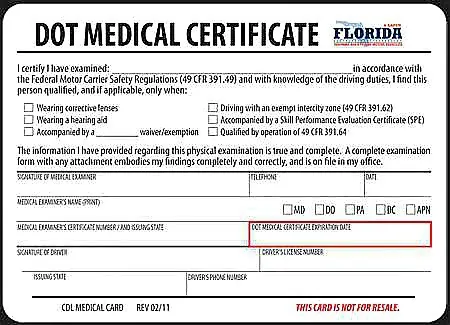Acquiring a commercial driver’s license in California is a thrilling step towards a stable and successful career. It’s always not as straightforward. A number of factors make applicants ineligible to drive big rigs or any other commercial vehicles. If you are thinking about a career in trucking, or in some other kind of commercial driving, then you have to know what disqualifies you from getting a CDL in California. From traffic violations down to health requirements, California prohibits anything on the road that does not meet high safety standards. In this article, we’ll discuss key disqualifications that will help you understand and avoid potential roadblocks in your path to a CDL.
What disqualifies you from getting a CDL in California?
From serious traffic violations down to criminal convictions and many more are disqualifying factors that could remove you from being granted a license. Here, we take a closer look at the key disqualifications to obtain a CDL in California.
Alcohol use, hit-and-run, and felony offenses

It is absolutely forbidden to operate a CMV in California with alcohol or controlled substances in your system. The penalties are very serious for CDL holders if they operate a CMV with their BAC at .04 percent or higher. By operating a CMV, you automatically agree to an alcohol test. The following are serious penalties that a driver can be assessed for a first offense:
- Driving a CMV with a BAC of .04 percent or higher.
- Driving a CMV under the influence of alcohol or a controlled substance.
- Refusing to submit to a blood alcohol test.
- Leaving the scene of an accident involving a CMV.
- Using a CMV in the commission of a felony.
- Driving a CMV at a time when your CDL is suspended or revoked.
- Causing a fatality through negligent operation of a CMV.
Any of the above offenses occurring in a HazMat vehicle result in a CDL suspension of at least three years. A second offense results in a lifetime ban from obtaining a CDL. You will also face lifetime disqualification for using your CMV to commit a felony involving a controlled substance. For any detectable amount of alcohol under the limit of .04 percent, you will be put out of service for 24 hours.
Major traffic infractions

Certain traffic offenses are considered serious violations for CDL holders and will result in CDL suspension for repeated occurrences. These serious traffic offenses include:
- Excessive speeding, driving 15 mph or more above the posted speed limit.
- Reckless driving.
- Making improper or erratic lane changes.
- Following another vehicle too closely.
- Committing traffic offenses in a CMV that result in fatal accidents.
- Operating a CMV without having a CDL.
- Driving a CMV without carrying your CDL.
- Operating a CMV without the proper class of CDL or required endorsements.
If you receive two serious traffic violations within three years of driving a CMV, you will be suspended from driving a CMV for at least 60 days. If you receive three or more serious traffic violations within a three-year period, your suspension period is extended to 120 days.
Breaching out-of-service orders
For CDL holders, the consequences are very serious for violating an out-of-service order since the orders mean that a commercial vehicle is unsafe to operate. The penalties from such violations are as mentioned below:
- A first-time offender who violates an out-of-service order shall be punished by the suspension of one’s CDL for 90 days.
- If you commit two violations of an out-of-service order within a period of 10 consecutive years, your CDL is suspended for one year.
- Three or more violations of an out-of-service order within a period of ten years, is to be punished by a three-year CDL suspension.
Violations at railroad-highway grade crossing

For CDL drivers, violations of the rules at railroad-highway grade crossings are serious offenses. The penalties may be cumulative for multiple offenses. For the violation of federal, state or local laws or regulations concerning the following:
- Stopping before crossing railroad tracks if the driver is not required to stop.
- Drivers who are not required to stop, failing to stop before reaching the crossing when the tracks are not clear.
- Drivers not required to stop, failing to slow down and check to see if the tracks are clear of an approaching train.
- Drivers who are always required to stop, failing to stop before crossing the tracks.
- All drivers, failing to have sufficient space to clear the crossing without stopping.
- All drivers, failing to obey a traffic control device or the directions of an enforcement official at the crossing.
Inadequate undercarriage clearance, for example, prevents all drivers from crossing successfully. These violations are deemed to carry the following penalties:
- A first violation results in a 60-day CDL suspension.
- A second violation, occurring within three years, includes a 120-day suspension.
- A third violation, occurring within three years, carries a penalty of one year.
- These severe penalties provide a margin of safety for the drivers, passengers, and pedestrians at railroad crossings.
Background check and disqualifications for Hazmat endorsement
Obtaining the HazMat endorsement requires added scrutiny: a fingerprint submission and an in-depth background check. All this goes to ensure that only those qualified are afforded the privilege of transporting hazardous materials. You will not be qualified, or may lose your qualifications, to hold a HazMat endorsement if you do not meet one of the following conditions:
- You are not a lawful permanent resident of the United States.
- You have renounced your United States citizenship.
- You are wanted or under indictment for certain felonies.
- You have been convicted in either military or civilian court of certain felonies.
- You have been adjudicated as not having mental capacity or been involuntarily committed to a mental health facility.
- The TSA has identified you as a security threat.
Traffic offenses in your personal vehicle

Under the 1999 Motor Carrier Safety Improvement Act (MCSIA), traffic offenses committed in your personal vehicle can result in the suspension or revocation of your CDL. The following circumstances apply:
- If you have your privilege to operate a personal vehicle revoked, canceled, or suspended for violations of traffic laws (other than parking violations), you will lose your CDL driving privileges.
- If your personal vehicle license is revoked, canceled, or suspended for offenses involving alcohol, controlled substance, or felony, you will be subject to a one-year CDL suspension. A second violation, whether in your personal vehicle or CMV will result in lifetime CDL disqualification.
- You are not eligible to apply for a “hardship” license to operate a CMV if your personal vehicle license has been revoked, canceled, or suspended.
Point accumulation for traffic violations
Convictions occurring while operating a Commercial Motor Vehicle or when a person is driving with a CDL are put on your driving record for specific point counts depending on the severity of the offense. The following are point retention periods:
- Major violations and disqualification actions: 55 years
- Out-of-service violations and disqualification actions: 15 years
- Accidents, serious violations, and disqualification actions: 10 years
- Railroad grade crossing violations and disqualification actions: 4 years
- Minor convictions: 3 years
For traffic accidents, driving unsafely usually equals 1 point. Accidents in which you are at fault or contribute to the incident are normally assessed at 1 point also. Major infractions that carry 2 points include but are not limited to reckless driving, driving under the influence of alcohol or drugs, and hit-and-run violations.
You will be in jeopardy of losing your CDL if your driving record reflects the following point accumulation:
- 4 points within 12 months
- 6 points in 24 months
- 8 points in 36 months
There are times when you will be allowed to have a greater point credit, after having appeared at a hearing and proved that the points were not from non commercial Class C vehicles.
Violations in a CMV count as 1½ times the point value. For Class A or B drivers without any special certification or endorsement, 2 additional points may be tolerated before being classified as a negligent operator.
Moreover, for any out-of-state conviction, it would be added to your driving record and may result in CDL sanctions. If you have an out-of-state CDL, any conviction while operating in California will be transmitted to your home state.
Hand-free and texting law violations

A conviction of a violation of California’s hand-free or texting laws while operating any vehicle, including a CMV will result in serious consequences. For multiple offenses, the penalties include the following:
- A second offense within 3 years for a violation of either the hands-free or the texting law will get you a 60-day CDL suspension and a 1 point assessment against your driving record.
- A third or subsequent violation within 3 years will result in a 120-day CDL suspension, with 1 point on your driving record.
FAQs
1. What disqualifies you from CDL California?
You may be disqualified to receive a CDL in California due to prior serious driving violations, a criminal background for specific felonies, medical disqualification, or drug and alcohol offenses. Other elements which may disqualify you from obtaining a CDL include lack of proper age or residency or failure to take knowledge and skills tests.
2. What felonies disqualify you from getting a CDL in California?
Felonies using a commercial vehicle for DUI, drug trafficking, or a hazardous material-related crime will disqualify you from getting a CDL in California. The other felonies in the case of controlled substances or those that are specified as violent also carry some risks of disqualification; especially if crimes were committed using a CMV.
3. How do I regain a CDL after suspension in California?
In California, you’ll have to serve the period of suspension and follow any and all conditions imposed by the California DMV to reinstate your CDL. This will include any required courses, paying fines, taking knowledge and skills tests, and clearing any legal issues or violations. If your CDL has been revoked, you may be obligated to reapply and pass all the California CDL requirements.
Final thoughts
In short, it is considered important knowledge for any aspiring commercial driver to know what disqualifies you from getting a CDL in California. From serious traffic offenses and criminal convictions to medical conditions and drug-related offenses, California has set rather strict standards to ensure the roads are occupied only by safe and qualified drivers. Being well-informed and fulfilling all the requirements will see you avoid disqualification and thus keep your CDL eligible. If you are ready to begin your journey of acquiring a CDL in California, this is the right place to take the first step, with expert guidance and support.



